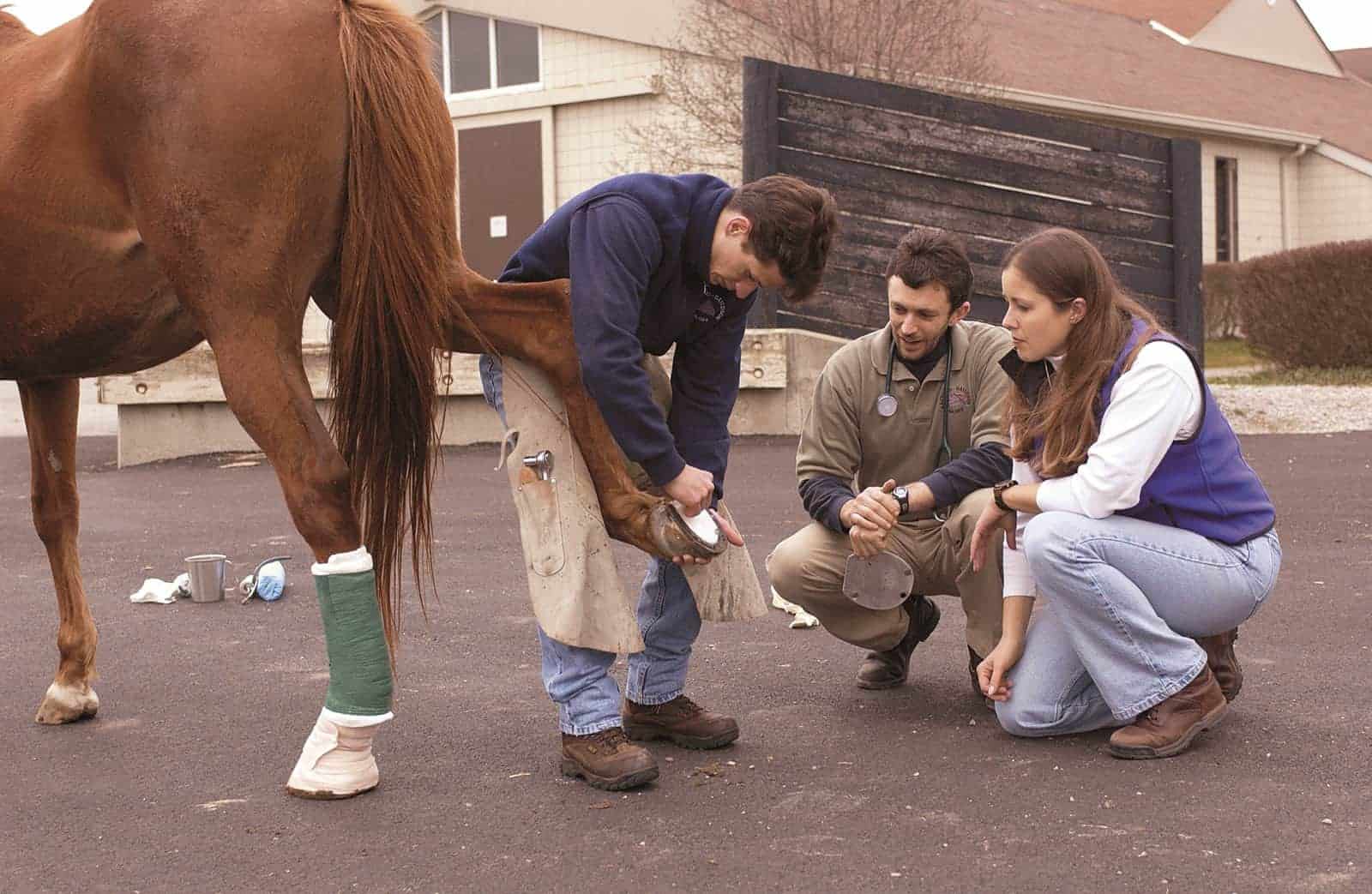The Horse Owner, Farrier, and Veterinarian Trinity
- Posted by Michael N. Fugaro, VMD, Dipl. ACVS

Any horse owner who has managed a clinical condition associated with their horse’s feet knows firsthand the influence farriers* and veterinarians can have on a successful outcome. The collaborative work of the owner, farrier, and veterinarian cannot be underestimated or trivialized because it can dictate soundness and overall health, particularly in the performance horse. Consequently, selecting the right farrier and/or veterinarian to invite to the horse’s care team is a vital step toward reaching this collaboration.
I recommend that horse owners consider the following when choosing farriers and veterinarians to work on their horses:
- Each farrier and veterinarian has his or her own professional style and personality. Horse owners must ensure that they and their horse agree with that style and can form a professionally successful relationship.
- Horse owners must critically assess whether farriers and veterinarians can meet their needs and expectations. These include but are not limited to cost, availability, experience, expertise, and customer service.
- Horse owners must have confidence in their farriers’ and veterinarians’ abilities. This is most important when professional disagreements arise.
- Hoof care and farriery philosophies and technology have evolved over the years. Farriers and veterinarians must be familiar with the progressive nature of the industry and recognize the current trends and research.
- Horse owners must be aware that while they are objectively scrutinizing veterinarians or farriers, these professionals are equally scrutinizing their decision to work for the horse owners.
As an equine veterinarian practicing in the Northeast, I have had the fortune to work alongside some extremely talented farriers and committed horse owners. While many of these individuals have directly influenced my professional development, I believe that I have reciprocated, providing education for them, as well
Create a free account with TheHorse.com to view this content.
TheHorse.com is home to thousands of free articles about horse health care. In order to access some of our exclusive free content, you must be signed into TheHorse.com.
Start your free account today!
Already have an account?
and continue reading.
Written by:
Michael N. Fugaro, VMD, Dipl. ACVS
Related Articles
Stay on top of the most recent Horse Health news with











